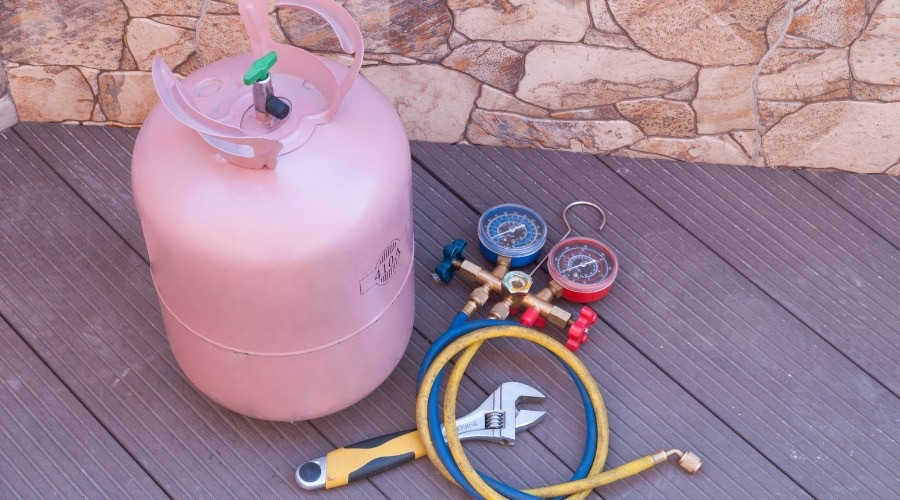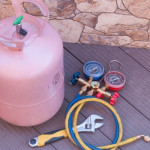Refrigerant and Signs of Refrigerant Issues
Refrigerant plays a critical role in HVAC operation by enabling consistent indoor cooling. Understanding the basic function of this substance helps explain many common performance issues in air conditioning systems. With the right knowledge, HVAC efficiency improves, and unexpected breakdowns become less likely. Exploring refrigerant-related concerns also supports more informed maintenance and repair decisions.
How Refrigerant Works in an Air Conditioning System
Refrigerant acts as the primary medium for heat exchange in air conditioning systems. This chemical absorbs heat from indoor air and releases it outside, completing a closed-loop cycle that allows cooling to take place. During this process, the refrigerant changes states between liquid and gas while moving through various system components.
The cycle begins when indoor air passes over evaporator coils filled with cold refrigerant, which absorbs the heat and evaporates into a gas. That gas travels to the compressor, where pressure increases significantly, and then moves to the condenser coils in the outdoor unit. Heat is released to the outside environment as the refrigerant condenses back into a liquid. The cycle completes when the liquid passes through an expansion valve and returns to the evaporator to begin again.
Signs of a Refrigerant Leak or Overcharged Refrigerant
 Cooling systems with low refrigerant often produce warm air and struggle to lower indoor temperatures efficiently. Extended run times and delayed cooling performance commonly result from leaks that reduce refrigerant levels. Ice buildup on evaporator coils and bubbling or hissing sounds near the outdoor unit signal possible refrigerant loss.
Cooling systems with low refrigerant often produce warm air and struggle to lower indoor temperatures efficiently. Extended run times and delayed cooling performance commonly result from leaks that reduce refrigerant levels. Ice buildup on evaporator coils and bubbling or hissing sounds near the outdoor unit signal possible refrigerant loss.
Excess refrigerant creates similar problems. Overcharged systems experience reduced efficiency, strange noises, and uneven cooling, much like undercharged systems. Both conditions strain the compressor and interfere with normal heat exchange, often causing ice formation and premature wear. Professional technicians use pressure readings and manufacturer benchmarks to identify whether refrigerant levels fall outside the recommended range.
How to Avoid Refrigerant Issues
 Improper refrigerant levels, whether too high or too low, place stress on HVAC components and lead to long-term damage. Technicians prevent these issues through accurate measurement and gradual adjustments based on system requirements. Tools like pressure gauges and recovery systems ensure proper charging while protecting equipment warranties.
Improper refrigerant levels, whether too high or too low, place stress on HVAC components and lead to long-term damage. Technicians prevent these issues through accurate measurement and gradual adjustments based on system requirements. Tools like pressure gauges and recovery systems ensure proper charging while protecting equipment warranties.
Routine service also includes leak detection and inspection of key components such as coils and valves. These evaluations reveal hidden issues like seal deterioration or corrosion that frequently cause refrigerant loss. Scheduled maintenance reduces the likelihood of unexpected failures and supports consistent system performance.
Coil cleaning during service appointments minimizes pressure buildup and ensures efficient refrigerant circulation. Clean coils reduce stress on the system and extend its operating lifespan. According to Energy Star, regular HVAC maintenance can significantly increase system life. Investment in professional care typically costs less than major refrigerant-related repairs and offers long-term energy savings.
About North Point Air Conditioning & Heating
In business since 1977, North Point Air Conditioning & Heating has more than 40 years of reliable HVAC services in Spring, TX, and the Greater Houston Area. They offer straightforward pricing, trustworthy technicians, and a 100% satisfaction guarantee. Call them today for AC refrigerant leak repair in Spring, TX.




